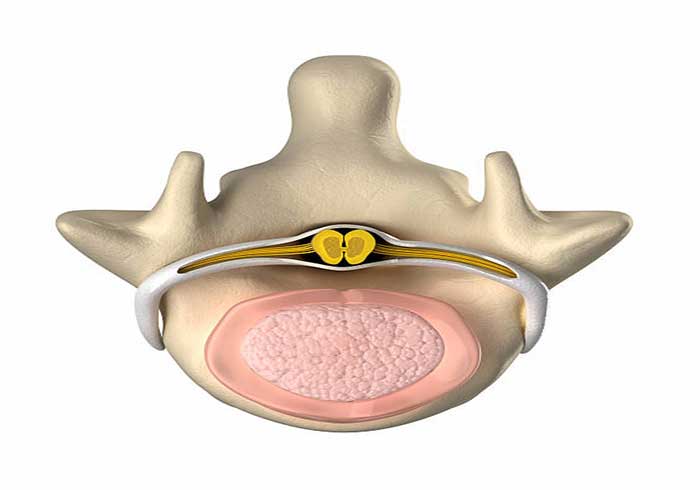If you have cauda equina syndrome, your doctor may recommend urgent surgery to relieve the pressure on the nerves. This will prevent ongoing damage to the nerves from causing permanent problems, including loss of bladder and bowel control, incontinence, paralysis or weakness in your legs, and sexual dysfunction.
Your doctor will evaluate your medical history, perform a physical examination and order diagnostic imaging studies. Your doctor will look for signs of numbness or different sensations in your backs of your legs, butt, hip and inner thighs (your saddle area).
Medications

The cauda equina is a bundle of nerve roots (nerves that leave the spinal cord between spaces in the spine to connect to other parts of the body) at the lower end of the spinal cord.
The nerves in this area provide the ability to move and feel sensation in the legs, bladder and bowel. When a herniated disc or other condition compresses the nerves, it can cut off your ability to feel and move these areas.
Without treatment, pressure on the nerves can cause permanent paralysis or impairment of your bladder and bowel control, loss of sexual sensation, and other problems, Check over here.
The best outcomes for patients with cauda equina syndrome come from immediate surgical decompression of the compressed nerves. This surgery can relieve the pressure on the nerves and prevent permanent damage. However, some patients may not recover full function.
Physical Therapy
If you are diagnosed with cauda equina syndrome, your physical therapist can help you develop a plan for treatment. They might work with your doctor to prescribe medications, and they may teach you special exercises.
Your physical therapist might also recommend surgery to decompress the nerves. That is often the best way to restore normal function and prevent permanent neurological damage.
The most common cause of cauda equina is a herniated disk (disk herniation). A herniated disk is a ring of soft tissue that pushes out through a hole in the hard outer surface of a spinal disc.
Another cause is spondylolisthesis, an abnormal forward slip of one vertebral body on another. This can compress the cauda equina and cause symptoms like pain and weakness in the lower back, legs, or feet.
If you have symptoms of cauda equina, you should see your doctor as soon as possible. It’s especially important to get prompt medical attention if you have severe pain, numbness or loss of bladder or bowel control.
Surgery
If your cauda equina syndrome is caused by a herniated disc, neurosurgeons may need to perform a spinal decompression surgery to remove the material pressing on the nerves. This involves a large incision in the back and moving aside the muscles, tissues and protective lamina surrounding the nerves in order to access the source of pressure.
The cauda equina is the sac of nerve roots that lies at the lower end of the spinal cord. These nerves provide sensation and movement to the legs and bladder.
When a herniated disc presses on these nerves, it can cause pain and other symptoms in the backs of the legs and inner thighs. It can also affect bowel and bladder control, sexual function and other problems.
The condition can be diagnosed by a doctor examining your back, and by imaging studies such as CT scans and MRIs. If your cauda equina condition is serious, it’s important to get treatment quickly.
Counseling
When the nerve roots in your lower spinal cord (cauda equina) are compressed, they can cause serious problems for your bladder and bowel. This rare condition is a medical emergency that should be treated promptly to prevent permanent damage to your lower extremities and loss of function of your bladder and sexual organs.
When a person has cauda equina syndrome, they have pain, numbness or other sensations in the backs of their legs, butt, hip and inner thighs (your saddle area). They may also have weakness or paralysis of their lower extremities.
Conclusion:
These symptoms often occur after a herniated disc or a lumbar vertebral fracture. Patients with a history of cancer or severe infection may be at high risk of developing this condition as well.

